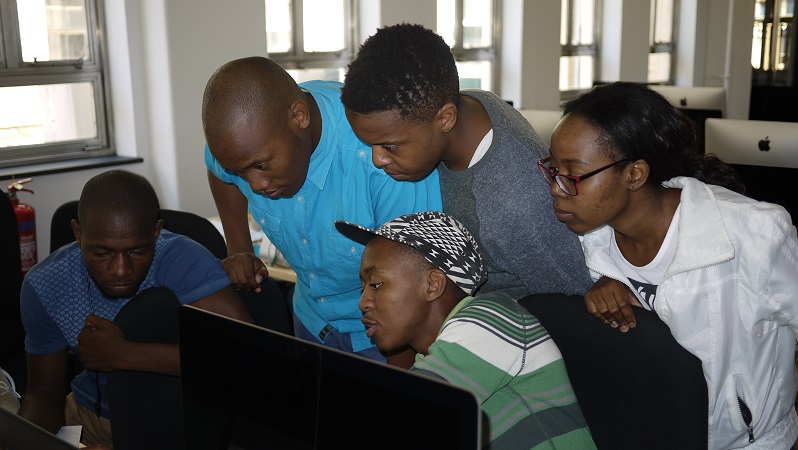I spent the first six months of my studies at WeThinkCode_ stressing, complaining and generally lagging behind.
It wasn’t long before I realised that the recipe I’d been using was one for disaster. It took a long time for me to get into the rhythm of coding. As I struggled I reached out to people on the outside, other survivors.
“Here’s a challenge for you, if you wish. How many programming books did you read in the past 12 months? Call that number X. In the next 12 months, try to read at least 2 * (X + 1) programming books.”
This was in an email response from Breck Yunits, a 32 year old programmer who had written an article on how to get started.
The hardest thing about being in a competitive environment is making the the decision to step back and begin again. There came a time in my journey where I truly embraced my failure. For me, this time came when I decided that I am not everyone else, and that I needed to take responsibility for my own code. I wasn’t working far as hard as many of my peers, and although I was dealing with external issues, so were many other people.
The first step I took was to grow my network. The only coders I knew were people in my class, I wanted to know what others on the outside knew, how they used this knowledge, and what it meant to them. So I attended my very first hackathon. The 2016 Ekurhuleni Municipality Hackathon was facilitated by Geekulcha. I had written to one of the cofounders Tiyani when I started at WeThinkCode_ asking for advice. “How did you get into the programme?” He had asked me many months before. This was the type of response I got often, as if it was a mistake for me to be here.
The following weekend I was at the FNB Codefest, which for me turned out to be about far more than code. I met a Software Engineering professor from the University of Stellenbosch. “Who wrote the C programming language?” He asked a bunch of us. “The practical application of the language is what we focus on at the school, not so much on the theory,” came a response. The professor was not at all impressed. It was at this point in the Codefest that I realised where the problem with my learning had begun.
Learning is an individual process. It is essentially how I as a person understand and interpret information. For the longest time I had been taking in information that I could not decode because I did not understand where it came from and how it came to be. It took six months, countless tries, and a lot of asking for help to realise and accept the mistake I was making.
I was also able to interact with a large number of established developers at the TADHack Global hosted by MTN. It is always a scary place to go into when you are an amateur. It is also the most beneficial place to be at when you have just found your feet.
The maze was tough, the scorch tougher. We lose friends along the way, make others as we go along, and most importantly get our wits are sharpened. The Right Arm is what we make it out to be in our minds. The harder and smarter we work towards finding it, is directly proportional to the time it takes to do just that.
“Just follow me and run like your life depends on it. Because it does.”
James Dashner, The Maze Runner
Written by Tumelo Motaung
This story is part of a regular series written for htxt.africa by students of WeThinkCode_, a revolutionary new teaching college in downtown Johannesburg, reflecting on what it’s like to be a young technologist starting out in South Africa today. Find out more about WeThinkCode_ here.

